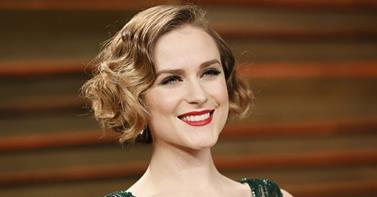On this last day of Bi Health Awareness Month, please take one last look at the information provided by the Bisexual Resource Center on mental health for bis. Learn how we’re vulnerable and what we can do to help ourselves. Our health matters, too! Here’s a letter to Tiggy on the topic…
Dear Tiggy,
I was sexually/physically/verbally abused as a kid. As I got older, I came to the conclusion that I was bisexual. However, my therapist and others have all told me that my bisexuality was a result of trauma and that I’m not actually bisexual.
I had a really hard time coming to terms with my sexuality, but when I’m in an accepting environment, I’m okay with it. Has anyone else been told this too? Most people will not even talk to me about this. I just wanted to know whether there are others like me at all.
-Maggie
Other queer people who have experienced abuse have been subject to inaccurate and ignorant theories connecting the two attributes. You are not alone, and I’m sorry that you have to put up with that treatment.
“Good for her for knowing who she is! Rock on!” That’s Peter Ruggiero’s reaction to the tenor of your letter. Peter serves/d on the board of the Bisexual Resource Center and BiNet, the two largest bi organizations in the States. He also works on behalf of male sexual assault survivors, and is a survivor himself. Although your signature indicates that you are female, much of Peter’s knowledge of the psychology and sociology surrounding sexual abuse is relevant to survivors of any gender.
This is his take on why people are reacting to your sexual identity as they have: “When a survivor comes out with confidence, it knocks people off their pins. In this case, it’s the biphobia combined with people who are not sure of their own sexuality and related issues. Trauma plus religion can sometimes prompt this reaction as well. Maggie is coming at this with so much confidence that it’s jarring the people she’s talking to.”
I can only think of two reasons for why some people believe that your bisexuality is prompted by the abuse you faced…
HYPOTHESIS #1: Sexual trauma can shift someone’s sexual orientation.
This is such utter nonsense that I cannot take it seriously as a legitimate proposal. Pandora’s Project, a website for sexual assault and abuse survivors, addresses the matter aptly here.
It’s virtually impossible to prove a negative — i.e. “No environmental stimuli can shift your sexual orientation” — but there has been absolutely no indication, much less evidence, that it is possible or has ever happened. In my opinion, any counselor who actually believes this hypothesis should be barred from conducting a therapeutic practice.
Peter concurs: “There are old wives’ (and husbands’? Spouses’?) tales that abuse will make you this or that. There’s not a lot of precision to these accusations. I assure you, there is nothing scientific on which to base any presumption that sexual trauma will make you straight, gay, bi, or anything else.”
HYPOTHESIS #2: Having sex with people of different genders may be part of “acting out” subsequent to experiencing sexual trauma.
This could be what your therapist is claiming. Let’s take a look at common reasons behind post-trauma sexual acting out:
- You assert your sexual behavior in a manner that allows you to be in control, counteracting the feeling of helplessness from your trauma. Sexual orientation has no bearing on this.
- You’re a straight male who was sexually abused by a male and you’re afraid that it means you’re gay. You have sex with women to prove to yourself that you are straight. This does not translate to other genders or sexualities because our society only values hetero masculinity. In other words, you have no reason to want to prove that you are bisexual.
- You search for a high to distract from the pain caused by trauma. The dopamine hit or distraction you might gain from sex is irrespective of the gender of your partner.
- You engage in reckless sex because the trauma has made you feel worthless. You can have risky or safe sex with any gender.
- You don’t understand that the abuse you suffered is not normal or healthy. Clearly, this is not your problem but even if it were, it has nothing to do with sexual orientation.
- You’re trying to recreate what happened on some level but “correct” the ending. The idea that this would prompt bisexuality for you presupposes that your abuser was female. (So if he wasn’t, this is moot.)
-
That last possibility was the only one whose invalidity I wasn’t 100% sure about. Luckily, Peter set me straight. “If you’re acting out, you’re acting out, period,” he says. “The gender of the person with whom you’re acting is not particularly germane; it’s the act of acting out.”
Notice, too, that these theories only operate off of sexual abuse (not otherwise physical or verbal) and assume active sexual behavior (when perhaps you haven’t done that yet). The logic behind the suppositions others are making on your sexuality just doesn’t check out.
Peter says, “There’s a lot of fear out there, and it combines with bi/homophobia in our culture. If your therapist is trying to convince you of your sexuality and you know she’s wrong, then her qualifications come into question. This therapist is not treating bisexuality as a legitimate sexuality; she is treating it as a way to be extra slutty. It’s just some old-fashioned biphobia.”
Agreed, bi brother. From where I stand, Maggie, the most important factor in all this is that you seem perfectly comfortable with your sexuality. Ergo, I can’t see that anyone has the right or reason to pathologize it.
Being bi is not a mental health problem.
© 2015 Tiggy Upland. Tiggy Upland reserves the right to use all submitted queries anonymously, in any medium.
